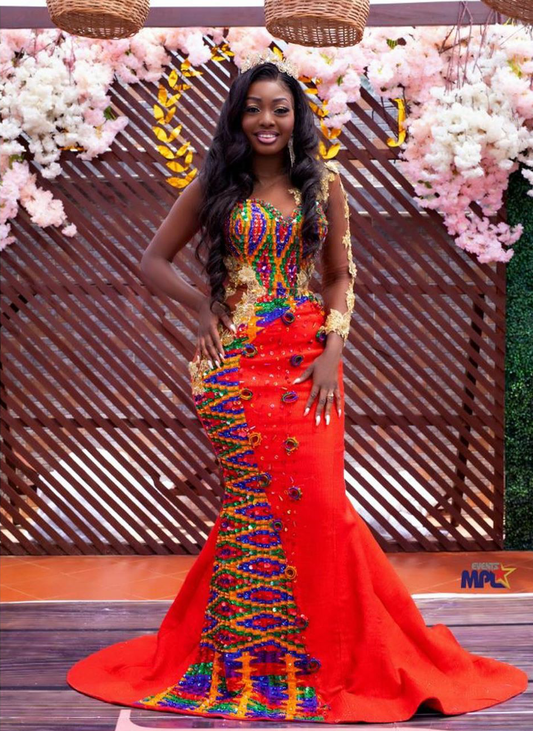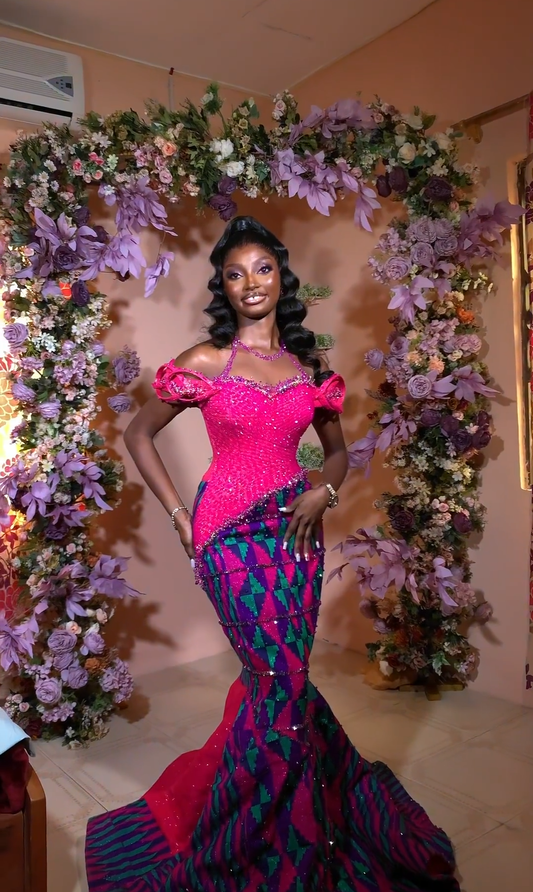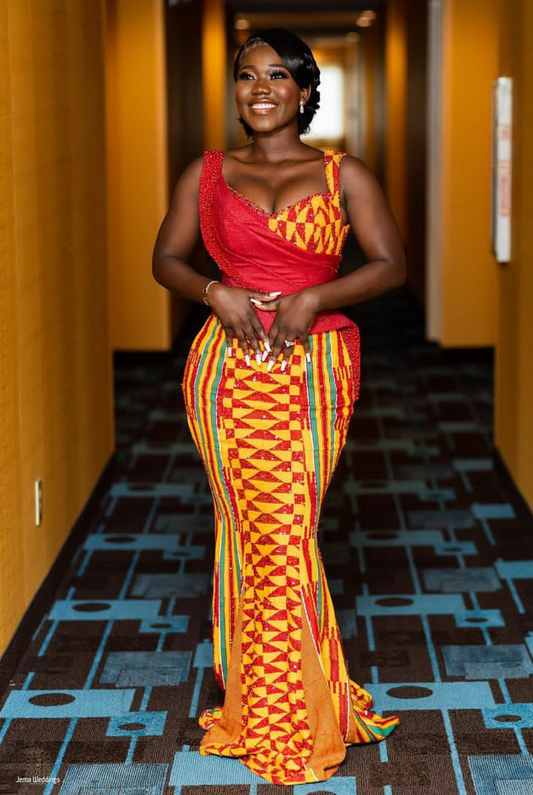In South Southern Nigeria an ancient tradition continues to thrive among the Igbani, Kalabari, Okrika, and Opobo ethnic groups. The Iria ceremony, a celebration marking a girl's transition into womanhood, showcases the rich cultural heritage of these Ijaw communities and their reverence for feminine grace and dignity. At its core, Iria is more than just a ceremony, it is a transformative journey that celebrates purity and preparation for womanhood. In the Wakrike Kingdom, encompassing Okrika, Ogu/Bolo, and parts of Port Harcourt, this rite of passage carries deep significance for young women who have reached the age of maturity. The ceremony's requirements are strict which includes that the participant must be a virgin, must be up to 15 years old and must demonstrate good character and proper upbringing.
The announcement of an upcoming Iria ceremony begins with tradition itself, a town crier moving from "Biri to Biri" (community to community), alerting parents to prepare their eligible daughters. This preparation phase is crucial, as families begin the process of nurturing and nourishing their daughters for this momentous occasion.
The physical preparation of an Iria maiden is elaborate and symbolic, her body is anointed with palm oil and exposed to sunlight for hours to achieve smooth, glowing skin,her hair is dyed with "Awu," a local dye available in red, pink, and purple,she is adorned with "Ikulede" (turmeric powder). Daily ritual baths in saltwater at dawn maintain her radiant appearance. A pivotal moment in the ceremony is the hair-shaving ritual, the shaved hair is carefully preserved by family members.
One of the most significant phases of Iria is the fattening room period, where maidens spend anywhere from three to six months in seclusion. This time is far more than physical preparation, it's an intensive education in womanhood. Here, older women share their wisdom, teaching the initiates home management skills, traditional and cultural roles, personal care practices, future responsibilities as wives and mothers. Life in the fattening room is not just about learning, it's also about enjoyment, the maidens are treated to local delicacies such as “Temi Buru" or "Yam Popo" with fresh fish pepper soup, meals rich in seafood including "Mgbe" (oysters), “Ikpopu" (barnacles), “Ipoli" (prawns), “Isam" (periwinkles). To keep their spirits high, they engage in traditional games like Ludo and "Whot" card games.
On the day of the Grand finale or Iria Celebration, when the maiden emerges from the fattening room, she is a vision of traditional beauty, adorned in beautiful wrappers including the prestigious "Feni" fabric,beads on her legs and ankles, a matching bowler hat, a ceremonial walking stick. The celebration features "Egbelereme" (menopausal women) who sing traditional songs while the maiden dances, showcasing her grace and the success of her preparation.
Despite having a strong historical foundation, Iria has changed over time. While preserving the ceremony's essential principles, Christian influences have changed some of the customs. Nowadays, some families delegate some of the financial burden to potential suitors, who might cover the maiden's expenses during the ceremony. Iria continues to be an effective portrayal of the Ijaw people's dedication to conserving their cultural legacy and educating young ladies for their future careers. It combines education, cultural preservation, and communal celebration into a single, spectacular ceremony that symbolizes more than just a celebration of physical adulthood.





























